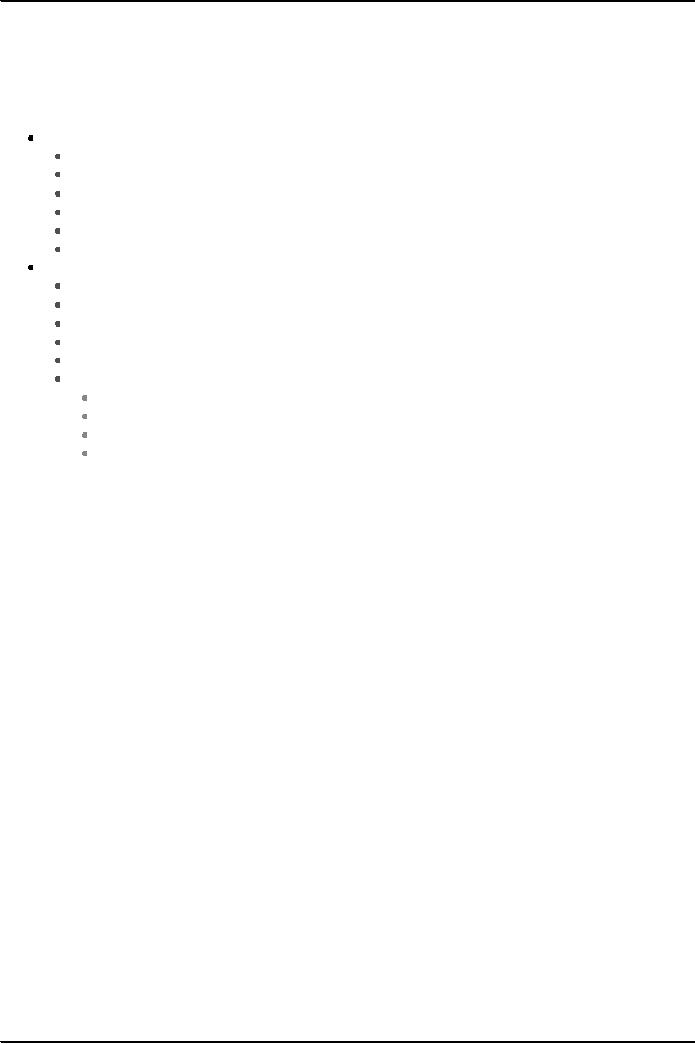 |
What is Fiscal Policy, Canons of Taxation |
| << AN OVERVIEW OF TAXATION |
| Type of Taxes, Taxation Management >> |

Taxation
Management FIN 623
VU
MODULE
1
LESSON
1.2
AN
OVERVIEW OF TAXATION
What
is Fiscal Policy?
Fiscal
policy is a discipline that deals
with arrangements which are adopted by
government to collect the
revenue
and make the expenditures so
that social and economic
stability could be attained / maintained.
Objectives
of Fiscal Policy
Economic
Development
Raising
level of employment (Achieving full employment
level)
Influencing
consumption patterns
Price
stability
Redistribution
of income
Removal
of deficit in Balance of
Payments
Instruments
of Fiscal Policy
Government
Expenditures
Taxes
Deficit
Financing
Subsidies
Transfer
Payments--like Unemployment Allowances
etc.
Sources
for Revenue Generation for
State
Taxes,
Tariffs
Internal
& External Borrowing
Penalties
& Fines
Aids
& Grants
Canons
of Taxation:
Simplicity
This
principle implies that
taxation system should be plain,
and easily understandable by the tax
payer.
Convenience
The
convenience of tax payer as well as tax
collector must be the bottom line of
any taxation system.
The
time of
payment of tax, mode of
collection of tax, should be convenient
for the tax payers.
Certainty
This
cannon suggest that the amount of
payment should be certain and
there should not be
any
arbitrariness
or ambiguity with respect to the amount of tax to be
paid by the tax payer.
Judicious
The
taxation system should be based on the
principles of equity, fair play, and
all known principles of
natural
justice.
Capacity
to Pay
This
principle suggests that
taxation system must be
based keeping in view the capacity to
sacrifice by the
person
on whom the tax is levied, those who
have more income should pay
taxes at high rates/
proportions,
where as those who have
low income, they should pay
taxes at lower rates or
proportion.
Benefit
principle
This
principle suggests that
taxes should be levied according to the benefits
derived by the person from the
state.
Since more benefits are derived by
lower income groups, hence
according to this principle, those
who
derive
more income but enjoy less
benefits from the state should be taxed
at the lower rates and
those
persons
who derives less income
but more benefits from State
should be taxed at high
rates.
Business
Friendly
According
to this principle, the taxation policy
should be such as to boost business
atmosphere and not
discouraging
the investment environment.
2
Table of Contents:
- AN OVERVIEW OF TAXATION
- What is Fiscal Policy, Canons of Taxation
- Type of Taxes, Taxation Management
- BASIC FEATURES OF INCOME TAX
- STATUTORY DEFINITIONS
- IMPORTANT DEFINITIONS
- DETERMINATION OF LEGAL STATUS OF A PERSON
- HEADS OF INCOME
- Rules to Prevent Double Derivation of Income and Double Deductions
- Agricultural Income
- Computation of Income, partly Agricultural,
- Foreign Government Officials
- Exemptions and Tax Concessions
- RESIDENTIAL STATUS & TAXATION 1
- RESIDENTIAL STATUS & TAXATION 2
- Important Points Regarding Income
- Geographical Source of Income
- Taxation of Foreign-Source Income of Residents
- Exercises on Determination of Income 1
- Exercises on Determination of Income 2
- SALARY AND ITS COMPUTATION
- Definition of Salary
- Significant points regarding Salary
- Tax credits on Charitable Donations
- Investment in Shares
- SALARY AND ITS COMPUTATION EXERCISES 1
- SALARY AND ITS COMPUTATION EXERCISES 2
- SALARY AND ITS COMPUTATION EXERCISES 3
- Tax treatment of Gratuity
- Gratuity Exercise
- PROVIDENT FUND
- Exemptions on Business income, Treatment of Speculation Business
- Deductions Allowed & Not Allowed
- Deductions: Special Provisions, Depreciation
- Methods of Accounting
- Taxation of Resident Company
- Taxation of Companies: Exercises
- Computation of Capital Gain
- Disposals Not Chargeable To Tax
- TAX RETURNS & ASSESSMENT OF INCOME UNIVERSAL SELF ASSESSMENT SCHEME
- Normal Assessment, USAS, Provisional Assessment, Best Judgment Assessment
- ADVANCE TAX COLLECTION & RECOVERY OF TAX PENALTIES & PROSECUTION
- What is Value Added Tax (VAT)?
- SALES TAX
- SALES TAX RETURNS